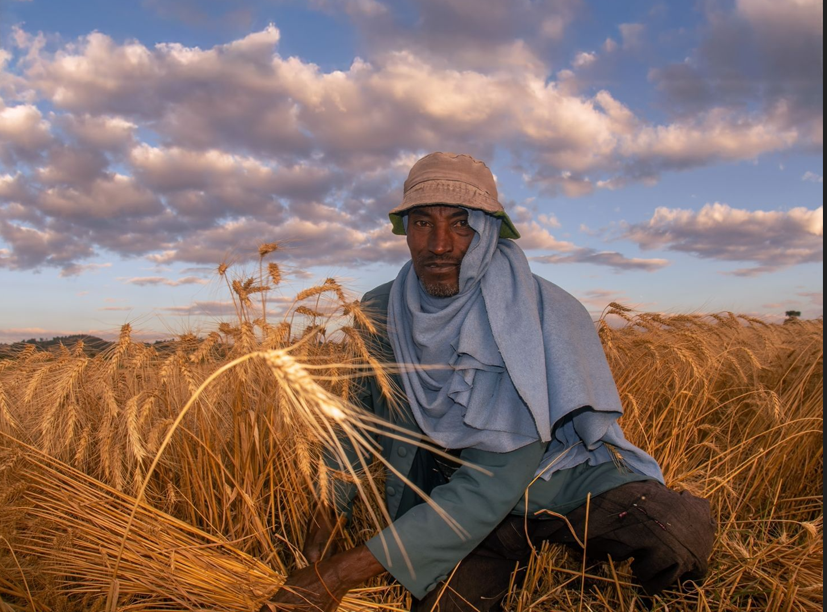The developing world is facing a serious funding challenge.
While the current crisis has been triggered by deep and sudden US aid cuts, it reflects a broader trend of declining official development assistance (ODA) in recent years.
This moment is prompting a reassessment of the aid model itself—particularly its tendency to foster structural dependency.
Countries long reliant on external support are now being forced to rethink their policies.
For nations facing acute humanitarian crises, these cuts have devastating consequences.
Here, increased international solidarity and financial support remain essential.
But for others, this moment presents an opportunity to reconsider their development pathways.

Often seen as an outlier, Eritrea offers some provocative but timely lessons in self-reliance and development with limited resources.
Based on the UN’s partnership in the country, here are five takeaways from Eritrea’s model that feel especially relevant right now:
1. Set your own development agenda
Eritrea has been deliberate in ensuring that external assistance aligns with national priorities. Development partnerships, including with the UN, are guided by government-led strategies, rooted in a philosophy of self-reliance and evaluated through a lens of long-term sustainability. This has allowed the country to retain greater control over its development agenda rather than reacting to shifting donor priorities.
It is important to note that self-reliance does not mean isolation. Eritrea maintains a diverse set of partners — including Italy, China, the UK, and Japan. The UN has a long-standing presence in the country and today supports efforts in solar energy, education, health, food security, climate resilience, and more. This partnership is articulated in and adheres to a cooperation framework that reflects Eritrea’s own development priorities, approaches, and leadership.
2. Look inward: Strengthen domestic resources
When Eritrea ended USAID operations in 2005 (Financial Times), many questioned whether the country could sustain progress without substantial foreign aid. Nearly two decades later, Eritrea has relied on domestic resource mobilisation, emphasising basic needs, social protection, and sustainability. Tax revenue, remittances, and public sector investments in agriculture, health, and renewable energy have been key drivers of its model.
3. Investing in people first
Eritrea has prioritised basic service provision and social protection, making notable strides in education, healthcare, and food security. It was one of the few countries to meet its Millennium Development Goal (MDG) health targets.
One example of the innovative ways it targets the most difficult to reach communities is the Barefoot Doctors programme, an initiative which trains and deploys community health workers to deliver essential medical services in remote areas—dramatically improving healthcare access for hard to reach populations. Additionally, Eritrea’s emphasis on women’s rights and equality—rooted in their historic role during the liberation struggle—is reflected in policies that expand educational and economic opportunities for women and girls.
Near-universal vaccination campaigns have curbed infectious diseases, while community-led efforts in water conservation and soil preservation have bolstered food security. These initiatives show how targeted investments in human capital can lead to lasting development outcomes.
4. Make development a collective effort
Eritrea’s relatively small population has been mobilised through a strong culture of civic responsibility and participation. For instance, the construction of small, local dams for water conservation and agriculture is led by communities themselves. This approach fosters ownership and long-term sustainability while keeping costs low and minimising waste.
Coupled with minimal corruption (The Guardian), this means every dollar invested by development partners has an outsized impact.
5. Think long-term, build resilience
Eritrea has prioritised sustainability and resilience. Investments in solar power, dam construction, and soil conservation have reduced reliance on imports and external aid. The UN has supported these efforts, particularly through climate adaptation programmess that help farmers adopt drought-resilient practices.
As financial constraints challenge global development efforts, resilience-building—in areas like climate adaptation, sustainable agriculture, and energy independence—is becoming ever more essential.
Final thoughts
The global aid landscape is shifting, and many governments are struggling to adapt to shrinking donor funds. Eritrea’s experience suggests alternative approaches to development, reinforcing that progress is fundamentally a local process. While external support can catalyse change, sustainable development ultimately depends on the leadership of communities and national systems to define and lead their own pathways.

Eritrea’s model is not without its complexities. Its tight controls on political and economic life distinguish it from many other nations. The private sector is underdeveloped, limiting innovation, economic dynamism, and job creation—especially for the country’s growing youth population. Other factors, such as an enabling policy environment, could further unlock the country’s potential to fully mobilise foreign investment. As Eritrea looks ahead, nurturing a broader and more inclusive economic base will be essential to translating development gains into sustainable livelihoods and economic opportunities for all.
Nevertheless, in a world where financial constraints are the new normal, Eritrea’s philosophy of self-reliance raises important questions about how governments can sustain progress with limited external resources. As the global community reassesses aid and development partnerships, Eritrea’s experience offers valuable insights worth considering.
The article was first published on TRT Afrika.















